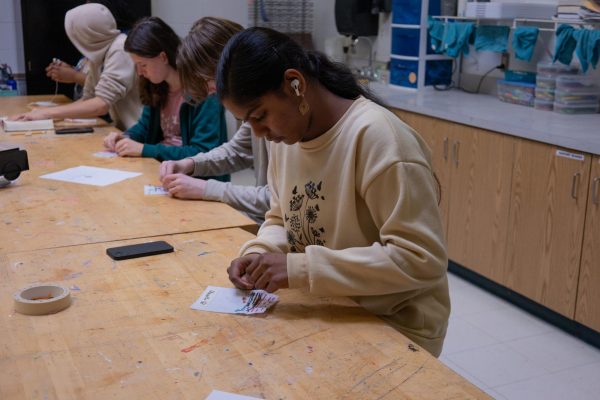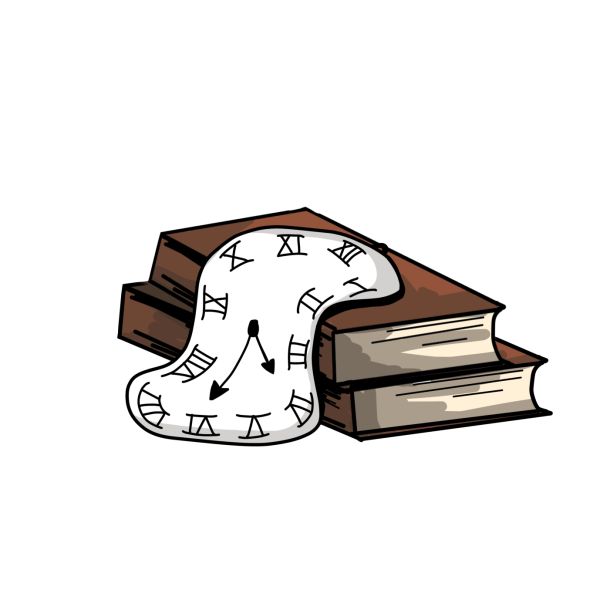Analyzing the Errors of Our Ancestors
Is holding historical figures to today’s standards logical?
The Founding Fathers on Mount Rushmore.
Patriotic Americans tend to put our founding fathers on some type of pedestal. We view the men that brought our nation to life as demigods sent from heaven. From a young age, we are taught that the ‘good guys’ in history (the history we are made aware of, that is) could do no wrong- that they were always in the right. But, were they?
The fundamental document of our country reads, “We hold these truths to be self-evident, that all men are created equal…” yet, the writer of our Constitution owned men, alluding that all men were not, in fact, created equal. Our beloved third president, Thomas Jefferson, owned around 600 slaves throughout the course of his life. In fact, most of our founding fathers owned slaves. George Washington, Benjamin Franklin, James Madison, and other prominent figures of our upbringing owned slaves.
But, can we really blame them? Back then, owning slaves was completely normal, especially for rich, white men. However, some men back then in power didn’t own slaves, and were even against it. For example, Alexander Hamilton never owned slaves and didn’t advocate for it; although, his stance usually leaned more towards practicality rather than morality when it came to a man’s right to property. A close friend of Hamilton’s, John Laurens, was an open critic of slavery. Furthermore, Laurens was known for encouraging those around him to free their slaves, including George Washington himself.
Another issue that comes up is women’s rights. Women have been treated as objects for as long as history has been told. Women have been expected to reproduce, take care of children, cook, and clean. Even when women were in power, they were expected to be an aid to their husband and their main job was to produce heirs. Speaking of producing heirs, Henry VIII of England was so obsessed with producing a male heir that he went through six separate queens before his death. Henry ended up having one son with Jane Seymour. Their son, Edward, became Edward VI of England at the age of nine after the death of his father. Edward was only 15 when he died of tuberculosis, reigning for only 6 years. The point being, Henry had two other daughters that were significantly older than Edward, Mary and Elizabeth, but refused to accept them as legitimate heirs because they were girls.
Yet, at the time, that’s just how it was. Women were used to being treated like this, for the most part. Girls were taught that their purpose was to serve their husbands and please men, no matter what. As time went on, women have obviously gained more rights and now have equal opportunities, but back then, women having equal rights was unheard of. Then again, that’s just the way things were.
Is our judgement valid? Are we allowed to diss our ancestors and look back at their faults and scoff in disgust? In my opinion, absolutely not. Times were completely different back then, and we have no room to judge their ways of life and what they deemed was right. Now, I’m not justifying their actions in any way, shape, or form. What they did was clearly wrong, but we cannot be upset with them, because they thought what they were doing was acceptable. They were raised to believe what they were doing was okay, as were the generations before them. They believed there was no harm in their doings because at the time, it was the norm.
We are taught that the heroes of our history books could do no harm- that they did everything with a good heart and only good intentions. This is far from the truth. Inevitably, mistakes were made, and mistakes will continue to be made, but they are in the past now. We study history to learn from our mistakes and make sure history does not repeat itself, but, no matter what we do, history will always rhyme.
Your donation will support the student journalists of Francis Howell Central High School. Your contribution will allow us to purchase equipment and cover our annual website hosting costs. FHCToday.com and our subsequent publications are dedicated to the students by the students. We hope you consider donating to allow us to continue our mission of a connected and well-informed student body.












